Federico Barak was killed at the age of eight by his father in the rooms of the Social Services of San Donato Milanese during a protected meeting. It was February 25, 2009 and, as has been repeated several times in all the proceedings that have taken place in recent years against the service that had him in custody, no one could have foreseen such a tragedy.
Federico was killed when he was under the protection
 Yet it happened and Federico was killed when he was under the protection of a public structure, therefore of the Italian State, after a provision by the juvenile court had decided, for the good of the child, not only that Federico should meet the father, for a balanced parental relationship, but that since the two parents are inadequate – also the mother who had raised him up to that moment – was placed under the guardianship of the services of San Donato, with maternal home placement. Power which, although left to the parents, was however exercised by the services “for the protection of the development of the minor and his need for growth in an attempt (…) to guarantee a recovery and a peaceful development of the relationship between parent and child”.
Yet it happened and Federico was killed when he was under the protection of a public structure, therefore of the Italian State, after a provision by the juvenile court had decided, for the good of the child, not only that Federico should meet the father, for a balanced parental relationship, but that since the two parents are inadequate – also the mother who had raised him up to that moment – was placed under the guardianship of the services of San Donato, with maternal home placement. Power which, although left to the parents, was however exercised by the services “for the protection of the development of the minor and his need for growth in an attempt (…) to guarantee a recovery and a peaceful development of the relationship between parent and child”.
BUT FEDERICO WAS KILLED WITH A GUN AND 24 KNIVES BY THAT FATHER WHOSE STATE WANTED TO ENSURE A CONSTANT PRESENCE IN THE CHILD’S LIFE AND FOR THE DEVELOPMENT OF A BALANCED LIFE
 but how could all this happen and above all how did it happen in an area guaranteed as a public service? The father, who committed suicide immediately afterwards, had plenty of time to kill his son and himself without anyone being able to intervene to steal an 8-year-old boy who was fighting against a 52-year-old man: but where was the service staff who did he take care of ensuring the growth of little Federico and that he had the authority decided by the Court over him, and that therefore he also had to provide for his physical protection, as well as psychological?
but how could all this happen and above all how did it happen in an area guaranteed as a public service? The father, who committed suicide immediately afterwards, had plenty of time to kill his son and himself without anyone being able to intervene to steal an 8-year-old boy who was fighting against a 52-year-old man: but where was the service staff who did he take care of ensuring the growth of little Federico and that he had the authority decided by the Court over him, and that therefore he also had to provide for his physical protection, as well as psychological?
Federico’s father
 According to the reconstruction of the trial, both the psychologist and the social worker who had Federico in charge were absent at the time of the fact, while the educator, who directly monitored the meetings between father and son, was going to knock on the assistant’s door under the request of Federico’s father, thus leaving the latter alone for a period of time which in any case, given the reconstruction of the facts, could not have been a moment. As the autopsy reconstructed, the child would have had time to escape and try to escape death by defending himself with his arms and hands from his father’s blows; and when a doctor and a psychologist rushed hearing the screams, the scene they reported was that of a criminal act that had already largely taken place, with
According to the reconstruction of the trial, both the psychologist and the social worker who had Federico in charge were absent at the time of the fact, while the educator, who directly monitored the meetings between father and son, was going to knock on the assistant’s door under the request of Federico’s father, thus leaving the latter alone for a period of time which in any case, given the reconstruction of the facts, could not have been a moment. As the autopsy reconstructed, the child would have had time to escape and try to escape death by defending himself with his arms and hands from his father’s blows; and when a doctor and a psychologist rushed hearing the screams, the scene they reported was that of a criminal act that had already largely taken place, with
THE CHILD UNDER THE BODY OF THE MAN WHO INFERED WITH THE LAST SLICTS ON THE LITTLE BODY BELOW HIM, TO THEN TAKE HIS LIFE BY CUTTING HIS VEINS AND HITTING HIMSELF
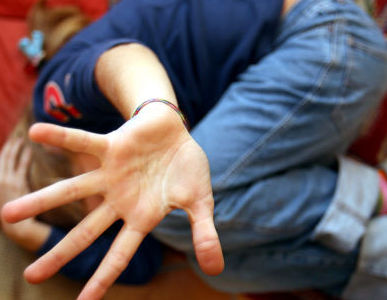 An attack already carried out against which not even the doctor’s attempt to push the man away with a chair and then with the fire extinguisher was useless. So where were the educator, the psychologist and the social worker who had the child in custody? But above all this State that had taken charge of Federico, judging both parents as inadequate, could he have imagined that Mr. Barak had premeditated the murder of his son by carrying a gun and a 20-centimetre knife with him?
An attack already carried out against which not even the doctor’s attempt to push the man away with a chair and then with the fire extinguisher was useless. So where were the educator, the psychologist and the social worker who had the child in custody? But above all this State that had taken charge of Federico, judging both parents as inadequate, could he have imagined that Mr. Barak had premeditated the murder of his son by carrying a gun and a 20-centimetre knife with him?
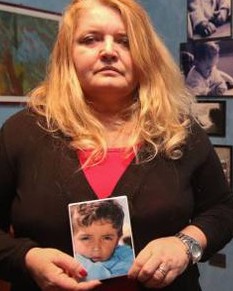
For the three levels of judgment that have occurred in recent years, the answer is no. After this murder, Federico’s mother, Antonella Penati, denounced the services that had her son in custody to verify his responsibility in the 3 people who directly had Federico under his guardianship with a mandate from the Juvenile Court, and who at that time they were absent during the meeting. A complaint that was even filed at the beginning and which was then investigated only at the insistent request of Mrs. Penati’s lawyer: sentences that acquitted all three defendants in the first instance, on appeal only convicted the psychologist in charge of the facility, and that finally:
THE COURT HAS DECIDED TO REFER TO THE FIRST INSTANCE JUDGMENT, AGAIN ABSOLVING ALL THOSE WHO HAD THE CHILD UNDER GUARDIANS AND EVEN GIVING MRS PENATI THE BURDEN OF THE PROCESS COSTS
Unrecognized Domestic Violence
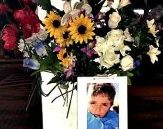 Yet reading the trial documents and the sentences, something is not right. As reported by Federico’s mother, when the child was 4 years old, after the separation and after a period on the run, Barak came back “demanding to see the child” with threats and persecutions. “I didn’t want to – says Penati – because he was violent, used drugs, and suffered from bipolar personality disorder, but it was the carabinieri who advised me to request sole custody given the dangerousness of the father and for this reason I turned to the Court which accepted my request but which in practice had to find the endorsement of the territorial social services for the verification of the nucleus”.
Yet reading the trial documents and the sentences, something is not right. As reported by Federico’s mother, when the child was 4 years old, after the separation and after a period on the run, Barak came back “demanding to see the child” with threats and persecutions. “I didn’t want to – says Penati – because he was violent, used drugs, and suffered from bipolar personality disorder, but it was the carabinieri who advised me to request sole custody given the dangerousness of the father and for this reason I turned to the Court which accepted my request but which in practice had to find the endorsement of the territorial social services for the verification of the nucleus”.
 In fact, from the trial papers it can be deduced that in reality Barak’s violence had already clearly emerged and that despite the woman’s request for help, not only the man had remained unscathed from any investigation by the services (both on violence and on the use of drugs) but that in the end it was Antonella Penati who was stigmatized as an anxious and “over the top” woman, and above all an obstacle in the recovery of the relationship between father and son, with a process of re-victimization by the State itself and exposure both of the lady and of the minor.
In fact, from the trial papers it can be deduced that in reality Barak’s violence had already clearly emerged and that despite the woman’s request for help, not only the man had remained unscathed from any investigation by the services (both on violence and on the use of drugs) but that in the end it was Antonella Penati who was stigmatized as an anxious and “over the top” woman, and above all an obstacle in the recovery of the relationship between father and son, with a process of re-victimization by the State itself and exposure both of the lady and of the minor.
ANTONELLA PENATI, HAVING TURNED TO THE JUVENILE COURT TO PROTECT THE CHILD GIVEN THE BEHAVIOR OF THE FATHER, HAS ALWAYS INSISTED ON THE DANGEROUS MAN WHO PHYSICALLY ASSAULTED HER SEVERAL TIMES
 who stalked her, threatened to steal the child from her and and who she herself reported, but without ever being listened to. A violence underestimated by social services, by the Court and therefore by the Italian State, which put both the life of the woman and the life of the child at risk, and which instead of defending the safety of the victims, exposed them in a fatal way. “When I met the service psychologist, she immediately proved against my requests – says Penati – and she told me that the child had the right to see the father anyway. She belittled or ignored my stories, despite a whole series of risk indicators for stalking, threats even to the child, reports of assaults on my mother and me. She spoke of Pas (parental alienation syndrome, ed) and she said “You discriminate the parental figure”.
who stalked her, threatened to steal the child from her and and who she herself reported, but without ever being listened to. A violence underestimated by social services, by the Court and therefore by the Italian State, which put both the life of the woman and the life of the child at risk, and which instead of defending the safety of the victims, exposed them in a fatal way. “When I met the service psychologist, she immediately proved against my requests – says Penati – and she told me that the child had the right to see the father anyway. She belittled or ignored my stories, despite a whole series of risk indicators for stalking, threats even to the child, reports of assaults on my mother and me. She spoke of Pas (parental alienation syndrome, ed) and she said “You discriminate the parental figure”.
Stigma against the mother
 A case in which the negligence and lack of vigilance of the service should be judged in an even more serious way, given that it was clear how consistent the risk factors were in a situation of domestic violence implemented by a former partner. An incongruous situation, that of the full acquittal of the center’s managers, given that it is the same Italian State which, on the one hand, ratifies the “European Convention against violence against women and domestic violence” (in which all these dynamics are very clear and binding for our country), and on the other is unable to outline the responsibilities of those who, having not believed the woman who denounced the man’s violence, labeling her as “anxious” or “overprotective” and even “ambivalent”, exhibited Federico to that same violence that sentenced him to death.
A case in which the negligence and lack of vigilance of the service should be judged in an even more serious way, given that it was clear how consistent the risk factors were in a situation of domestic violence implemented by a former partner. An incongruous situation, that of the full acquittal of the center’s managers, given that it is the same Italian State which, on the one hand, ratifies the “European Convention against violence against women and domestic violence” (in which all these dynamics are very clear and binding for our country), and on the other is unable to outline the responsibilities of those who, having not believed the woman who denounced the man’s violence, labeling her as “anxious” or “overprotective” and even “ambivalent”, exhibited Federico to that same violence that sentenced him to death.
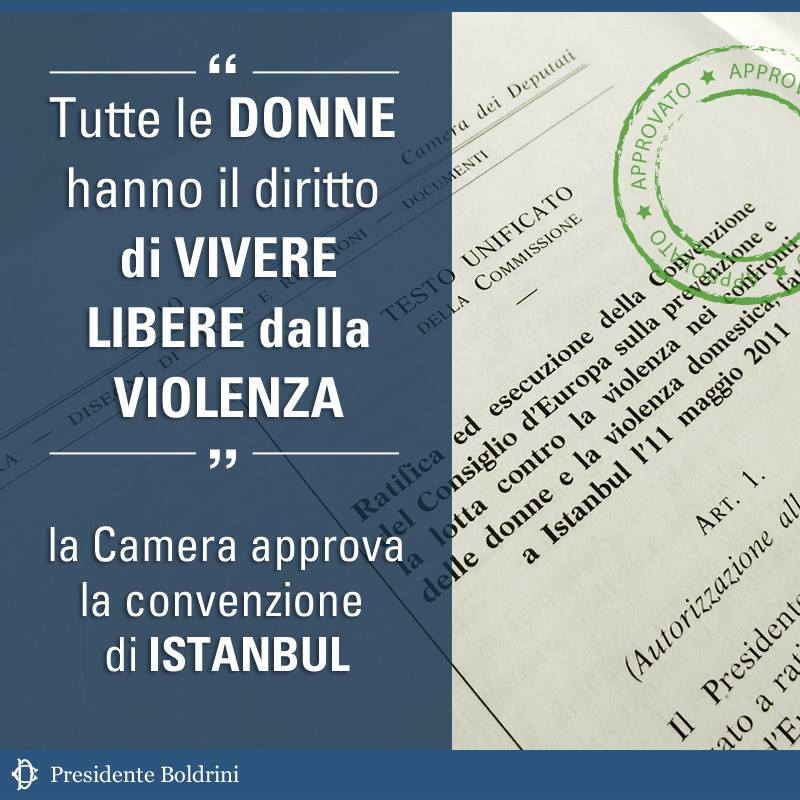 Indeed, according to the Istanbul Convention: “Parties shall take legislative or other measures necessary to ensure that, when determining children’s custody and visitation rights, incidents of violence falling within the scope of of this Convention; shall take the necessary legislative or other measures to ensure that the exercise of visitation or child custody rights does not jeopardize the rights and safety of the victim or the children” (Article 31 – Child custody, visitation rights and safety).
Indeed, according to the Istanbul Convention: “Parties shall take legislative or other measures necessary to ensure that, when determining children’s custody and visitation rights, incidents of violence falling within the scope of of this Convention; shall take the necessary legislative or other measures to ensure that the exercise of visitation or child custody rights does not jeopardize the rights and safety of the victim or the children” (Article 31 – Child custody, visitation rights and safety).
And as the testimony of another psychologist in the team in the center reports regarding the psychologist and the surgical assistant who followed Federico:

WHILE THE PRIEST, WHO KNEW PENATI WELL, CONFIRMED THAT

Finally, all the people who were close to Penati and her son testified that the woman, on several occasions, had made explicit her fears regarding her ex-partner’s violence, as evidenced by the complaints made by herself and never taken into consideration by either juvenile court or social services.
AN UNDEREVALUATION THAT COST THE LIFE OF the CHILD JUST BECAUSE THE MAN DECIDED TO KILL HIS SON
that she could not have with her as if it were an object of hers, and therefore in a framework that falls within the femicide, and not her ex-partner. A homicide that could only be committed at a time when the child, despite everything, was not sufficiently protected and that did not occur in the presence of the mother who, being aware of the man’s violence, protected in every way if herself and her son. A violence clearly explained by Dr. Parini:

AND ALSO FROM DOCTOR MAZZONIS WHO TREATED FEDERICO:

But then why does Italy, which is concerned with ratifying the Istanbul Convention and drawing up a national plan to combat violence against women and which two years ago passed a law on domestic violence, not enter the juvenile courts and services social networks throughout Italy where thousands of children are taken from mothers who report domestic violence to their partners and who, in an attempt to separate, find themselves forced into shared custody or forced meetings through expert reports that are not based on scientific bases but precisely on those cultural stereotypes that does the fight against gender-based violence report?
No one has ever paid for it
 Courts that unheard of will proceed by placing the caring parent on the same level as the abusive or violent parent? As demonstrated by the case of Federico in which Mrs. Penati, who had raised her little one up to that moment alone, was put on the same level as a missing, unreliable, drug addicted and above all violent parent. Why are the women whom, on the one hand, the Italian State wants to protect, instead exposed to risk of life and further violence by that same State which ignores its own laws and its own provisions on the matter?
Courts that unheard of will proceed by placing the caring parent on the same level as the abusive or violent parent? As demonstrated by the case of Federico in which Mrs. Penati, who had raised her little one up to that moment alone, was put on the same level as a missing, unreliable, drug addicted and above all violent parent. Why are the women whom, on the one hand, the Italian State wants to protect, instead exposed to risk of life and further violence by that same State which ignores its own laws and its own provisions on the matter?
ACCORDING TO THE DATA, THE CHILDREN WHO TODAY HAVE BEEN PLACED TEMPORARILY OUT OF THEIR FAMILY OF ORIGIN BY THE ITALIAN COURTS WOULD BE ABOUT 30 THOUSAND
 and many of these are victims of an endless injustice that takes place in the Italian courts against the boys and girls that the state prides itself on protecting. Mothers who denounce domestic violence and who are not believed, underestimated, labeled as “malicious”, anxious, overprotective, or even hysterical, and therefore unfit to raise their children and punished for this. Women who, albeit with a criminal proceeding against their ex for domestic violence, then find themselves in a juvenile court which imposes shared custody on them because “even if a man is violent it does not mean that he is not a good father”, as demonstrated in fact the case of Federico Barak.
and many of these are victims of an endless injustice that takes place in the Italian courts against the boys and girls that the state prides itself on protecting. Mothers who denounce domestic violence and who are not believed, underestimated, labeled as “malicious”, anxious, overprotective, or even hysterical, and therefore unfit to raise their children and punished for this. Women who, albeit with a criminal proceeding against their ex for domestic violence, then find themselves in a juvenile court which imposes shared custody on them because “even if a man is violent it does not mean that he is not a good father”, as demonstrated in fact the case of Federico Barak.




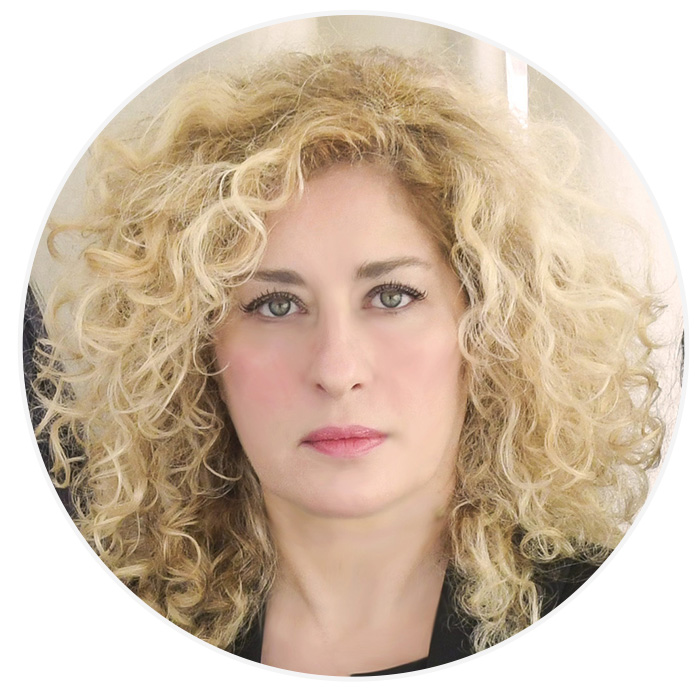 This is the english section of
This is the english section of 